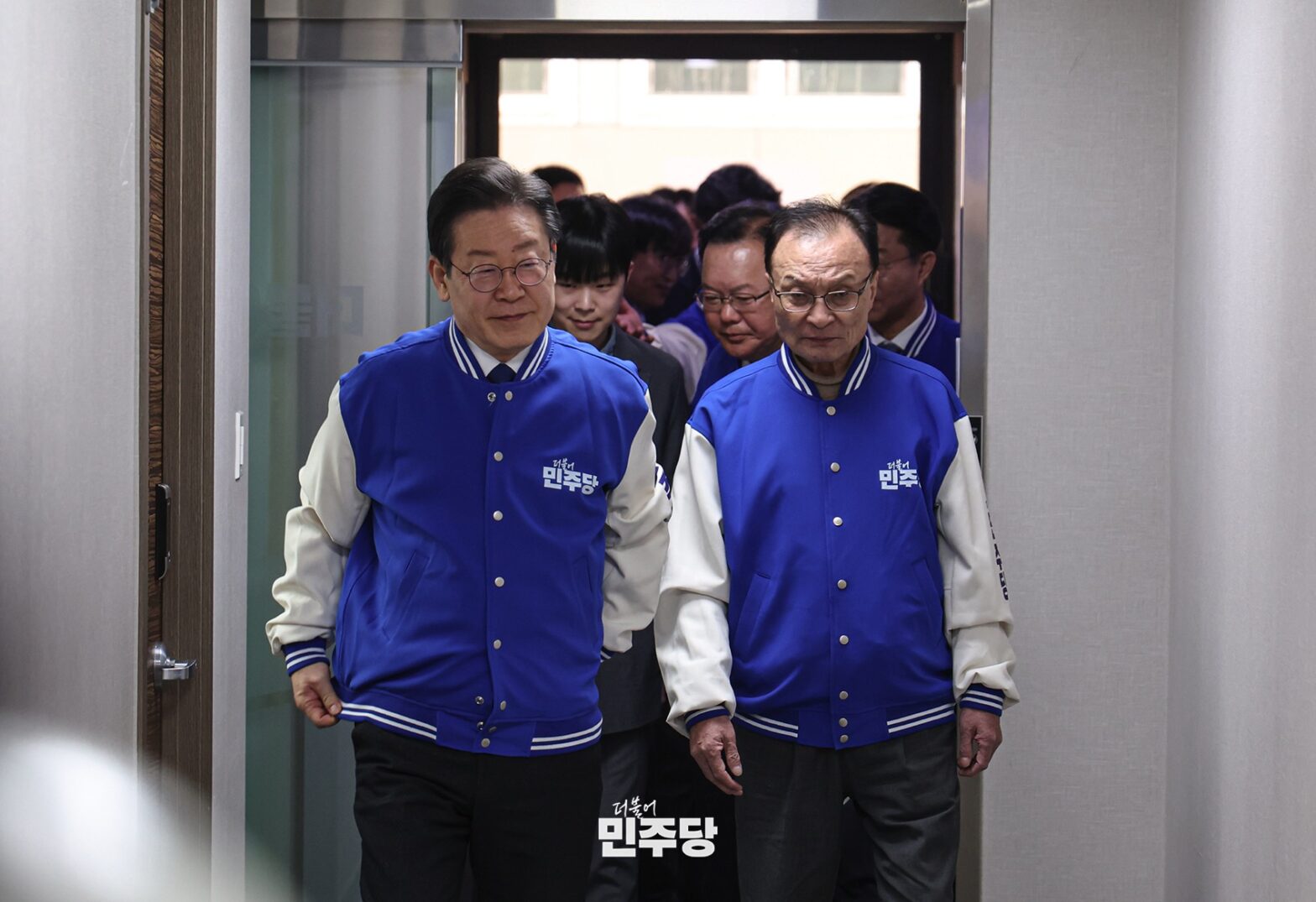Mystery of Lee’s Minjoo takeover
Until he was nominated as his party’s presidential candidate in 2022, Lee Jae-myung had been an outsider in the Minjoo Party. He was elected twice as a mayor and then a governor, having had no time to rub shoulders with Minjoo insiders in Yeouido.
When he was elected to lead the party after losing the election by a former prosecutor who’s been in politics for less than a year, many—including yours truly—had doubts about his grip on the party of which he’s never been an insider. Even in his last days in office, President Moon was quite popular unlike many of his predecessors, and the Moon group seemed to have a tight hold on the party.
And it’s no secret Moon hates Lee (and vice versa).
Lee’s takeover of the party, however, has been so fast and so sweeping. Party’s nominations for the upcoming general election often described as a “massacre” of Moon’s proteges. (It could be seen Lee revenging on those who voted for lifting Lee’s immunity to arrest as well.)
The primary for Seodaemun A constituency is arguably the most telling case. After multiple revisions of the primary rules, Ahn Gyu-back, party’s nomination committee chair, announced two out of five primary candidates were cut off.
But the revisions didn’t end there. The list of the final three was amended right the next day. The one who was raised from the dead was one of the lawyers who represented Lee and his cronies in the Daejang-dong scandal. (The case is still ongoing in courts.)
Guess who won the nomination?
I was so surprised by how it was clumsily done. Ahn is a seasoned politician who was elected four times as a lawmaker. Whatever Lee’s original intention was, he made Ahn look like an idiot who can’t keep his words straight.
Then I turned my eyes to the self-proclaimed citizen media, which proliferated during the Moon administration and ardently worked as Moon’s cheerleaders, distorting facts sometimes. They loved Moon and his proteges so much, they must have something to say.
Turns out, they already switched side as Lee’s fanboys and fangirls lead the Minjoo supporters. Most of them, including Kim Ou-joon, who now runs his own pollster as well as his news show, are now beating the drum for Lee.
Was Lee the master of blitzkrieg? I suspect otherwise. For one, Moon and his inner circle paved a way for Lee’s despotic takeover of the party. In hooliganistic fervor, his supporters obliterated Moon’s competitions in the party. All Lee had to do was stepping into the void of power Moon left behind. (And the so-called Lee faction is little more than a grouping under rather opportunistic motives; just look at what Lee Soo-jin, who used to be deemed a Lee ally, is doing now after she lost a nomination.)
At the end of the day, Lee’s takeover shows how feeble political parties actually are in South Korea. There is little grassroots: most of the members pay less than $1 a month for the membership; a politician being suspected to be running a botnet of spurious members, paying membership fees themselves, is one of the ever recurring themes in South Korean politics.
This is one of the fundamental reasons why politicians are getting worse generation after generation. Parties don’t (and can’t) grow talents within; they just pluck anything that glitters from the outside. They lack the ability to separate the wheat from the chaff, so more often than not the fresh blood comprises a bunch of narcissistic jerks.
Fixing this will be a long journey, but amending the current law on political party to allow a purely regional party—the current one doesn’t allow a party without a Seoul headquarter—would be a good start, sowing the seed for true grassroots.
